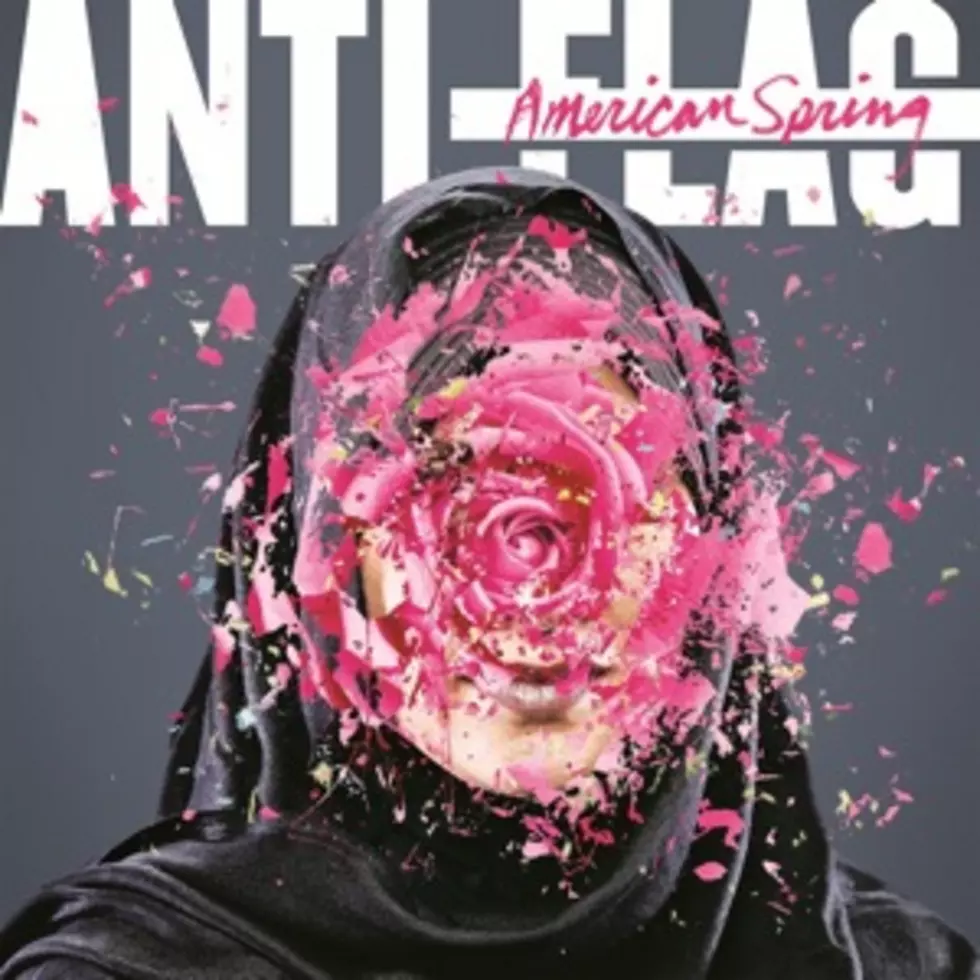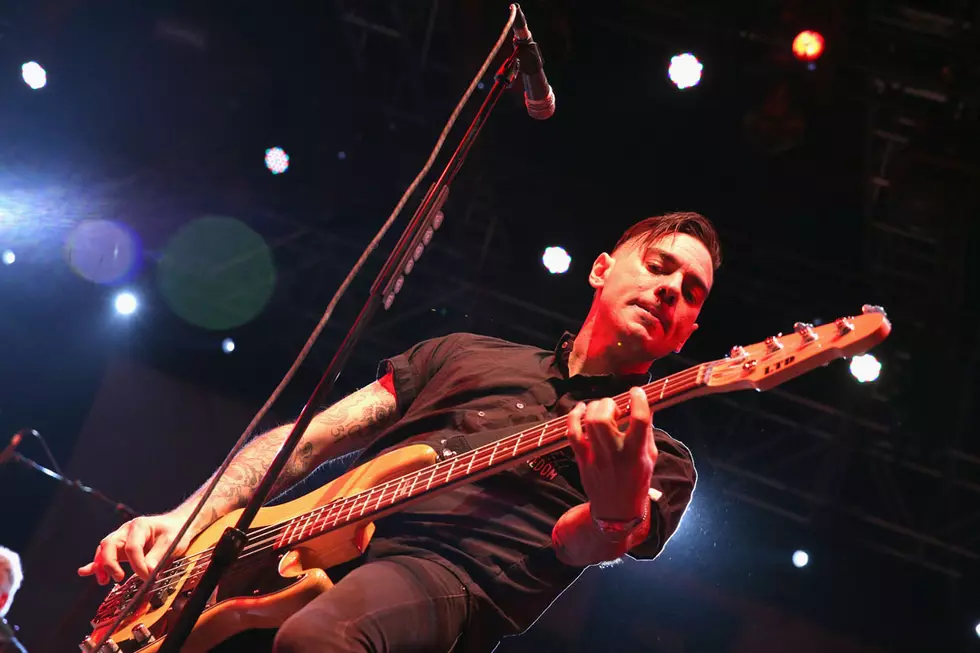
Album Review: Anti-Flag, ‘American Spring’
As longtime Anti-Flag bassist Chris "#2" Barker recently told us, he and his bandmates set out to make their ninth studio album a "tentpole record" -- i.e., they were intent on putting their best foot forward and making a statement that stands as tall as anything in their body of work. Barker, frontman Justin Sane, drummer Pat Thetic and guitarist Chris Head searched themselves -- and even weighed the possibility of not making proper albums anymore -- before deciding that if they were going to make another one, they had to do it with renewed conviction.
To put this decision in its proper context, though, it's important to remember that Anti-Flag have been quite active lately putting out non-LP material via a string of split 7" singles. And, to be clear, it's not as if they considered breaking up. But after dwelling on their legacy around their 20th anniversary in 2013 -- with the retrospective compilation A Document of Dissent, multiple re-recordings of old songs, and tours highlighting back-catalog albums -- they felt driven to voice their socio-political commentary in a way that rings true against today's headlines.
Unsurprisingly, events from 2012 to 2014 presented no shortage of lyrical fodder for a band that was founded on pointedly left-wing, humanistic principles. And American Spring does focus on the human cost of war (and the U.S.'s Middle East policies in particular), class division, corporate drive for profit, and the realities of living in a society where citizens routinely die at the hands of police -- all issues the band has addressed in the past, but issues that nevertheless stir up specific present-day connotations.
Fittingly, the liner notes come stocked with a wealth of pertinent commentary courtesy of Cornel West, Howard Zinn, Elie Wiesel, Albert Einstein, Henry David Thoreau, Adbusters, et al. But what prevents American Spring from turning didactic is that the lyrics themselves never stray too far from personal experience. By rooting the songs in the ordinary, Sane and Barker give credence to the larger issues that concern them. Barker himself contributes an essay in which he discloses sensitive family history with a candor that's almost unbearable. But it is this inward gaze that, ironically, authenticates American Spring's broader scope and (quite literally) fleshes it out.
By filtering the lyrics through individual perspectives, the band avoids coming off as distant from the subject matter. This time, Anti-Flag sound vulnerable and human. Their racing pop-punk riffs may embolden them (and the audience too), but when all is said and done the human beings making this music aren't necessarily protected by it. And, as galvanized as they sound railing against institutional abuse while tearing through fist-pumping chorus after fist-pumping chorus, Anti-Flag find their ultimate power by digging deep into their own fragile humanity.
More From Diffuser.fm









